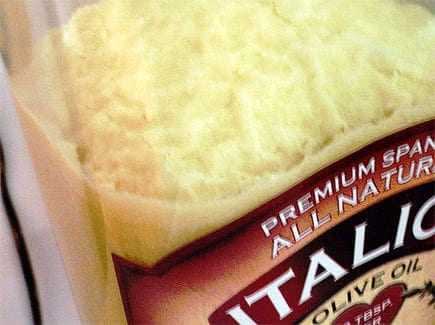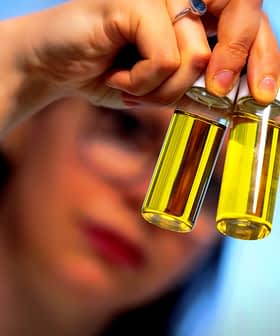
The harmless but unsightly crystallization that occurs when olive oil is stored in a fridge could be prevented by ultrasound treatment, Spanish scientists say.
They are seeking an international patent for their method, which includes applying ultrasonic pulses of 300 – 350W to olive oil in an opaque glass bottle, ideally for ten minutes, then removing any air in the bottle by ‘sparging’ with an inert gas such as argon.
The researchers, from the Universitat de les Illes Balears (UIB), said they found extra virgin olive oil thus pre-treated could be stored for at least 16 months at 4 – 6°C (39.2 – 42.86°F), retaining its physico-chemical and sensory properties, yet with no or very little crystallization.
Fast and affordable
The technology is said to be quick and cost effective, using affordable and commercially available equipment, and is offered for license to companies engaged in production and packaging of olive oil.
In tests using empeltre variety extra virgin olive oil from the island of Mallorca with an initial grade of acidity of 0.7 the scientists found keeping it at 0 – 8°C (32 – 46.4°F) was optimal for its preservation. “The results show that the storage period of this oil in particular, one that due to its acidity is very close to losing the extra virgin category, increases from 6 months to 12 months.”
However without treatment, storage at low temperatures causes unattractive cloudy blobs in the oil due to crystallization of its fatty acids, mainly oleic acid.
Ultrasound “doesn’t harm” oil quality
Experiments found the ultrasound treatment did not affect key physical and chemical indicators of extra virgin olive oil quality and avoided or significantly reduced the problem of crystallization.
“Pretreatment with ultrasonic pulses and storage of oil under optimal conditions may be a good method of preservation, because apart from maintaining the oil’s physico-chemical and organoleptic qualities, the oil can be kept in a liquid state for longer at fridge temperature because a common problem with oils kept at low temperature — crystallization of the fatty material — is avoided,” the patent application says.
According to a a UIB website, the method can be used for the preservation of extra virgin olive oils of all varieties and especially those with a high degree of acidity. It has not been tested with plastic containers “due to the ease of transfer of components of the container to its contents during the process.”








